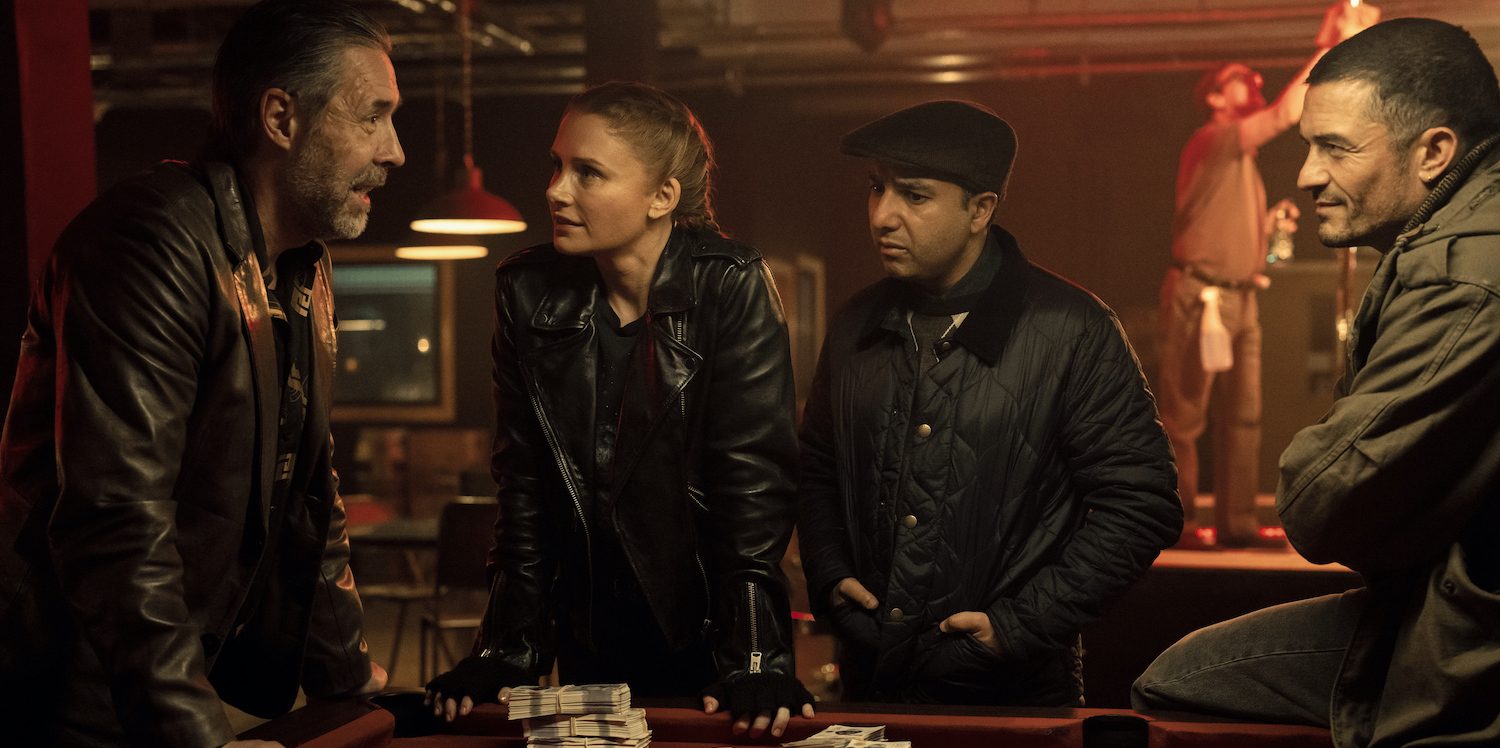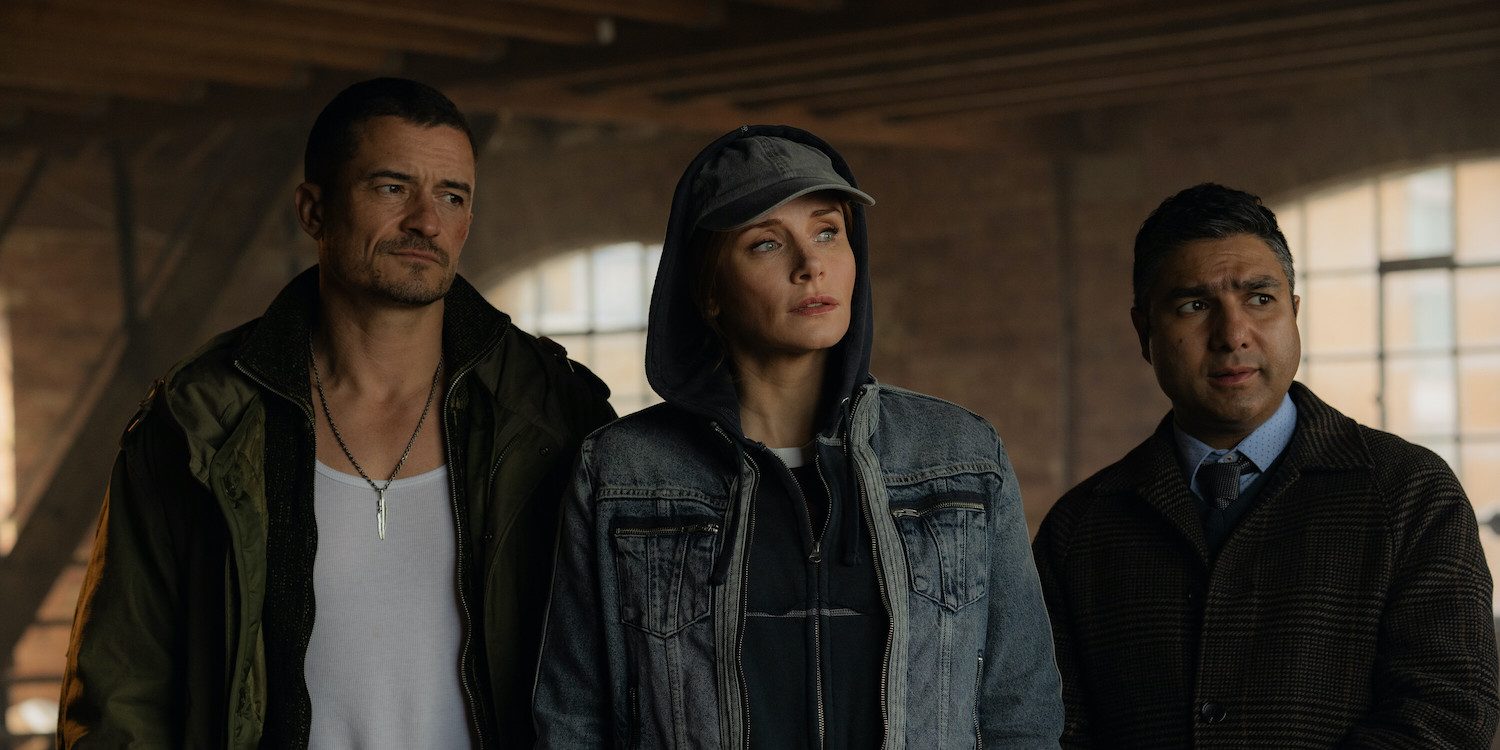Directed by Tom Kingsley, Prime Video’s ‘Deep Cover’ is an action comedy film that follows the story of three improv comedians who land themselves in an increasingly dangerous situation. The story begins with a failed actor and now improv teacher, Kat, who receives an offer from a police officer to go undercover for a sting operation. She recruits Marlon, a struggling method actor, and Hugh, an IT guy with low confidence and bad conversational skills, as part of her team. It is supposed to be an easy thing, but as the trio keeps improvising, the situation snowballs in such a way that they end up in the heart of London’s criminal world. The hilarious film makes one wonder if someone could really think about sending improv actors undercover. Interestingly, the idea isn’t so far-fetched.
The Fictional Deep Cover is Inspired by a Real News Article
‘Deep Cover’ is an entirely fictional film, the idea for which germinated in the minds of Derek Connolly and Colin Trevorrow after they came across a news article. It talked about the New York Police Department allegedly hiring actors as undercover agents for low-stakes sting operations, like going into a shop as customers and buying counterfeit stuff, which would expose the seller and make it easier for the cops to arrest them. The idea behind this was that actors were more experienced with playing other people, which means it would be easier for them to act a certain way and stay in character even if things went a little out of script, because they are used to thinking on their feet, which doesn’t necessarily come naturally to police officers.

The article sparked an idea in the minds of the writers, and instead of actors, they decided to explore the fictional scenario with improv comedians. Originally, the story was set in New York. However, about a decade went by, and the script was not picked up. During the making of ‘Jurassic World: Dominion,’ Colin Trevorrow came in contact with Ben Ashenden and Alexander Owen, who are improv comedians themselves, and quite experienced ones at that. When he shared the idea of his script with the duo, he asked them to do a rewrite and move the setting to London. The British setting would give a makeover to the story, but it would still remain the same at its core.

Ashenden and Owen were immediately taken by the idea, and given their own experience in comedy, they could relate heavily with the characters and their circumstances. The basic idea was that the skill set required by undercover cops is pretty much what one learns in improv comedy. So, they went to work on the script to make it as hilarious as possible, but also realistic. In the same vein, when director Tom Kingsley came on board, he wanted to focus on the grittier aspect of London to balance the drama with comedy. To present an authentic side of the city, he focused on real locations, particularly inspired by the cinematography of Tony Scott’s films. He believed that the more raw and dangerous the circumstances and surroundings felt, the higher the stakes would be and the more interesting and funny the film would become.
The Fictional Improv Comedians are Drawn from the Writers’ Real Experiences
When Ben Ashenden and Alexander Owen started reworking the script, they knew that the characters would be the heart of the story. So, to give them more depth and relatability, they drew upon their own experience in the comedy scene in London to craft three distinct characters. For this, they looked at the people they’d known or worked with over the years and borrowed elements from their personalities to enrich the fictional protagonists of the film, particularly when it comes to Kat and Marlon. When the actors joined the fore, they brought their own understanding and nuances to the characters.

They were given space to improvise, even though the script was tight enough for them to follow. Tom Kingsley revealed that while the actors got to play around with their characters, many of the things they improvised did not make the cut. However, it did help them understand their characters better and portray them more authentically on the screen. For example, the director had a long discussion with Orlando Bloom about his character Marlon, who is so deep into method acting that often, there is no way to know whether it is Marlon talking as himself or if he is in character.
Bloom revealed that he looked towards real-life people to sketch out the specifics of Marlon’s character. For example, for his alter ego, Roach, he drew inspiration from the British rock band Oasis’ Liam Gallagher. At the end of the day, the filmmakers wanted the audience to be thoroughly entertained by the film but also to find a sense of reality within the characters who are trying to figure stuff out about themselves, much like most people in this world. Their fallacies and vulnerabilities make them more believable to the audience, and that’s what elevates the characters and the film.
Read More: Deep Cover Ending Explained: Are Metcalfe and Fly Dead?


